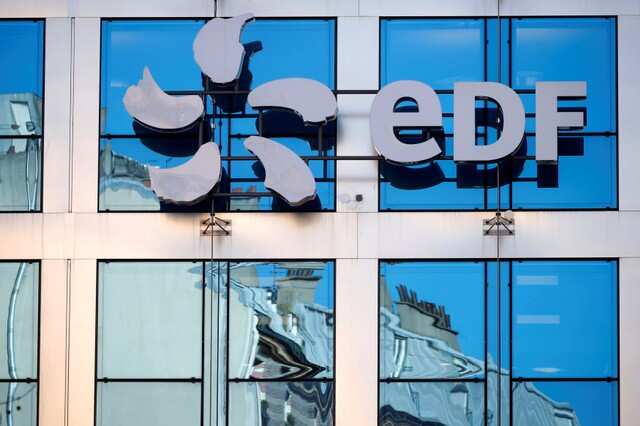 PARIS: France's ruling LREM party has proposed a 50% increase in the amount of nuclear power that state-controlled utility EDF is forced to sell to its smaller rivals each year.
PARIS: France's ruling LREM party has proposed a 50% increase in the amount of nuclear power that state-controlled utility EDF is forced to sell to its smaller rivals each year.Under the so-called ARENH mechanism EDF's competitors have the right to buy up to 100 terawatthour (TWh), about a quarter of its annual nuclear output, at 42 euros per megawatthour (MW) in a scheme aimed at giving them fair access to nuclear energy.
With the number of competitors increasing and wholesale prices well above the ARENH price, alternative power providers at the end of 2018 requested 133 TWH of EDF's nuclear output in 2019, which led to curtailment and calls by competitors to increase the ARENH volume to as much as 200 TWH.
An amendment by President Emmanuel Macron's ruling LREM party to its own energy transition law proposes to raise the ARENH ceiling to 150 terawatt hour (TWh).
"The proposed increase, which exceeds by 17 TWh the quantity of ARENH requested in December 2018, would allow suppliers to benefit from the cheap nuclear power and at a price that is lower than the wholesale price," the amendment read.
The amendment dated June 1, which is being discussed in commission, does not say whether the ARENH price will remain at the same level.
EDF has repeatedly said the ARENH price is too low and too advantageous for its competitors, who have built little power generation capacity of their own.
The ARENH mechanism was set up in 2010 in a bid to boost competition against former monopolist EDF.
New rivals such as Total, Engie, Uniper and Eni have won a combined share of about 23 percent of the retail market, but EDF remains dominant, with some 25 million subscribers to its regulated tariffs. Its biggest challenger Total has 4 million customers.
The French government plans to reform the power markets next year, which could include a new mechanism to calculate regulated tariffs, new rules on the ARENH as well as a possible restructuring of EDF that would nationalise nuclear energy production.
French year-ahead baseload power for 2020 delivery was up 0.2% at 50 euros/MWh by 1120 on Wednesday. ($1 = 0.8879 euros)